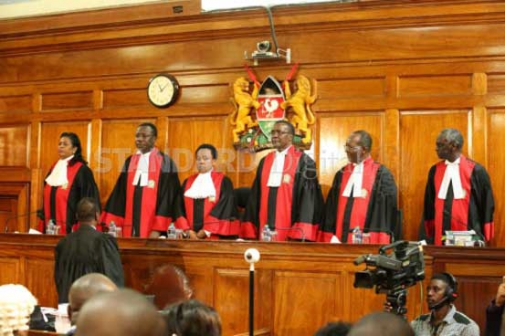×
The Standard e-Paper
Kenya’s Boldest Voice

NAIROBI, KENYA: Kenya shilling on Friday slipped to 103.2 against the dollar after the Supreme Court ruling nullifying August 8 presidential election.
This is a turnaround for the Kenyan currency which has in the last one month strengthened to a five month low of 102.7 against the green back following a peaceful election.